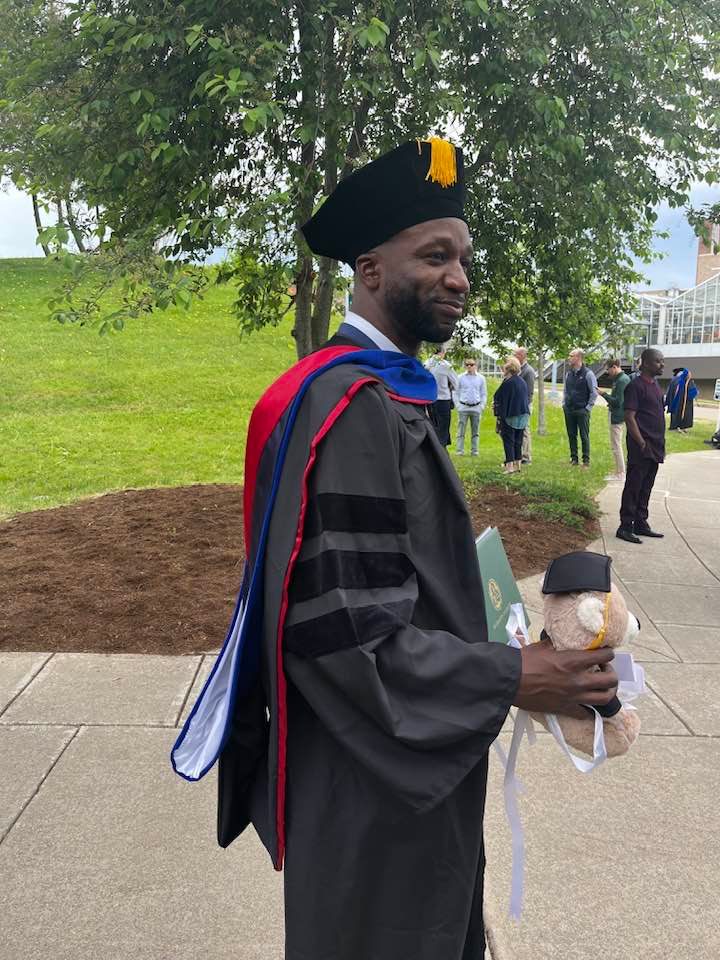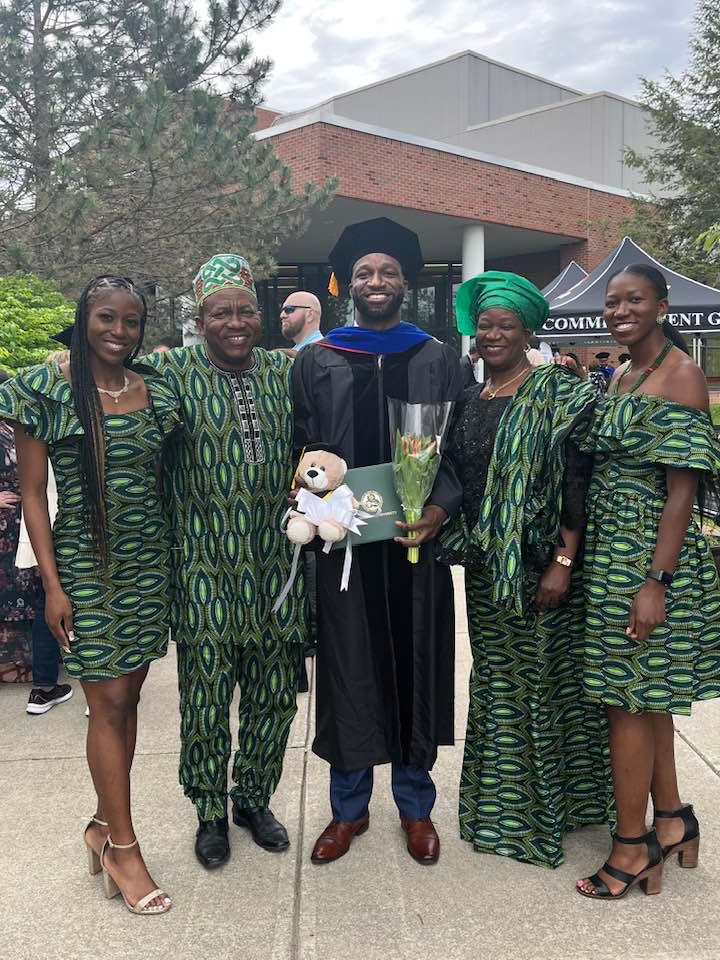Nigerian-born Tomiwa Osipitan recently bagged a Ph.D. from Binghamton University in the US. He specialized in Biomedical Engineering. He was barely six years old when he relocated to the US with his parents. But even at that, he has remained true to his African root.
In this interview with Church Times, Osipitan who is now 28, shares his experience doing his Ph.D. and expressed the wish to come back to Nigeria someday to contribute his quota to the nation’s development.
Congrats on your doctorate. How does it feel bagging a Ph.D. and what was it like when you first got to the US?
It feels good. It’s been a long road. It is rewarding to have finally finished my Ph.D. I had just turned 6 when we first came to the US. That youthful innocence was strong. But at the same time, I was anxious and nervous to be in a new country. I had always had the mindset to be successful as I possibly can by working hard and persevering. I wanted to be the best as a child. That was what has helped me till now. I am glad I have been able to pull through the programme.
What were your early years like in the US? Did you suffer any discrimination?
As a child just coming from Nigeria to the US I had a bit of an accent at that time. The children in my class were not used to my accent. Because they were not used to it they used to poke some fun. And that was understandable.
Children would always mark and make fun of someone who is different from them. I faced a few of that in school. I was marked for my accent as I said. That affected me a bit because as a child. I wanted to fit in. I remember trying to lose my accent. I wanted to speak more like an American. But that was the child in me. Beyond that, I did not face much discrimination maybe because I was a child and I did not think of any form of racial prejudice.
What did you plan to do in those early years as a young lad from Nigeria? Would you say your ambition has been accomplished?
The ambition I had was just to be the best version of myself. I wanted to excel in academics and in sports. Those were the things my parents instilled in me. My mother always says to me that the best you can always do is your best. My ambition was to strive to do my best.
Looking back at the past, I would say I was able to accomplish the ambition to be my best. Some of the things I tried to accomplish went well. Some did not go well. But I can look back today, thank God, and be happy that I always did my best. I have always believed that my ambition of being my best has come through.
Let’s talk about your Ph.D. programme. Why is your interest in academics and what were the courses you took in both your undergraduate days and the Ph.D.?
I studied biomedical engineering for my bachelor’s degree and my Ph.D. too. I must confess that going for a Ph.D. was not originally my plan. But I soon discovered that a lot of the time God has a bigger plan for us. I don’t know how it happened but I ended up pursuing a Ph.D. It’s probably one of the best decisions I made in life. I enjoyed learning new things, I enjoyed learning things I might have known but do not know in detail.
A Ph.D. gives you the privilege to further learn about a topic that you have a deep interest in. I realised I had to take the opportunity when it was presented to me. This was about six years now. I began my Ph.D. right after my bachelor’s degree. It definitely was not easy, It was quite challenging. There were times I thought I should just take my Master’s and leave. I thought the Ph.D. might just be too much for me.
But thanks be to God for giving me the grace to finish. I thank my family and friends for their support. I thank all who had been so helpful to me in my career for enabling me to complete this programme. It is perhaps one of the best decisions I have made in life. I was able to learn so much and meet so many people. It was not easy but it is fulfilling and worth the while.
What is it about Biomedical engineering, going forward what are your plans?
It is basically the use of principles in engineering to solve problems in biology and medicine. The best example is the use of prostheses or what we know as artificial limbs. Some call it fake legs and hands. Another example is for those who have heart problems. If their heart is not beating properly a pacemaker can be implanted in them to aid their beating.
It is a device that helps shock the heart and helps it to continue beating. We also have the example of stem cell treatment. If someone has liver damage, for instance, they can get a stem cell that could differentiate into liver cells to possibly replace the damaged cell. But then there are a lot of dimensions to biomedical engineering. I did more of the engineering in my undergraduate days.
But for my Ph.D., I worked more in pharmaceuticals and in the treatment of skin cancer. Both fields have their differences but also overlap. I have both areas of focus. What I want to do with this is to further continue working in medicine. I want to also help in the optimization of treatment or make the current treatment of some of these diseases better.
The job I am going to next is about making radiation treatment for cancer patients to be better. That is basically what I am hoping to continue to do. I also want to look at better treatment for different diseases in the world right now.
Do you see science finding solutions to some of these terminal diseases in the nearest future?
There are solutions already but the current solutions are temporary. I assume the question you wanted to ask is, would there be a permanent solution to these terminal diseases? I think that is tough, especially for a terminal illness like cancer that has different types. So there is not just one solution. I think progress is being made. But due to how we as humans are developing, a lot of these diseases develop the way we develop. So many treatments that are being used today may not be used in another five years. That brings a lot of difficulties. But we keep trying. I believe science will continue to find solutions to these terminal ailments.
Do you intend to go into academics now that you have your PhD.? What are your thoughts about Nigeria and in what way can the country learn from the US educational system?
I will like to join academia at some point. But currently, I am not sure. I decided to do a post-doc which is typically more academically related. It is a corporate setting In the hospital. I get to see the two at the same time. I would love to be a lecturer in the future. I would love to come back to Nigeria as well. I am not sure how that will go but I hope to come to teach at one of the universities in Nigeria.
Regarding the educational system, I am not sure how the system in the US is different from that of Nigeria since I did not do much schooling in Nigeria. But I can ask fellow colleagues who have been in Nigeria and make comparisons. What I know which everybody knows is that Nigeria has a lot of potential. That has not been harnessed. That is the painful part of the Nigerian story
All citizens know about the potential but no changes are being made. I hope one day the major issues holding the country back will be solved. Some of the issues can be solved in the immediate, some will take a while. Nigeria is certainly a great country, we hope to see the best from it.


